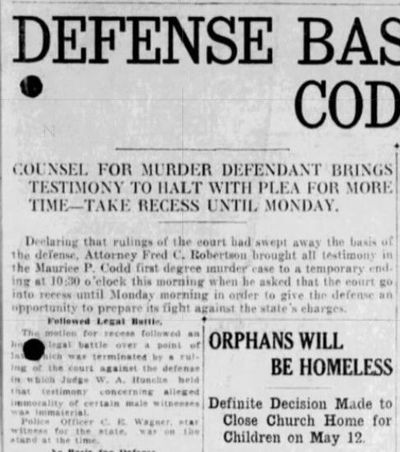This column reflects the opinion of the writer. Learn about the differences between a news story and an opinion column.
100 years ago in Spokane: The defense in the Frank Brinton murder trial was regrouping after arguments about witness and victim ‘immorality’ got tossed

The Maurice P. Codd murder trial was brought to a standstill when defense attorney Fred C. Robertson declared that Judge W.A. Huneke had deprived him of his entire defense case.
Robertson asked for, and received, a recess to prepare a new case.
Robertson had repeatedly attempted to “show the immorality of” the witnesses and even the victim, Frank P. Brinton.
It came to a head when the defense tried to show that Brinton and his fellow soldiers were drunk, that they were at the Granite Building “for immoral purposes” and that the Granite Building “tenants are of questionable character.”
Robertson even alleged a “gross frame up” among the witnesses to blame Codd.
The judge was having none of it. He said that testimony about the male witnesses’ criminal past could be allowed, but not questions about their morality. He noted an inconsistency of the law in that era: Testimony about immorality of women witnesses was allowable, but not immorality of male witnesses.
The recess took place right after police officer C.E. Wagner testified about what he saw when he arrived at the Granite Building.
Wagner said as he approached within about 4 feet of Codd, he saw Codd throw Brinton so violently over the third-floor railing that the soldier hit the second-floor railing at a point directly opposite. The building’s “light well” or atrium was 14 feet wide.
While Wagner struggled to subdue him, Codd called him vile names. At one point, Codd asked Wagner to take off his handcuffs so he could “go a round with the sergeant,” that is, one of Brinton’s fellow soldiers who was berating Codd for killing his friend.